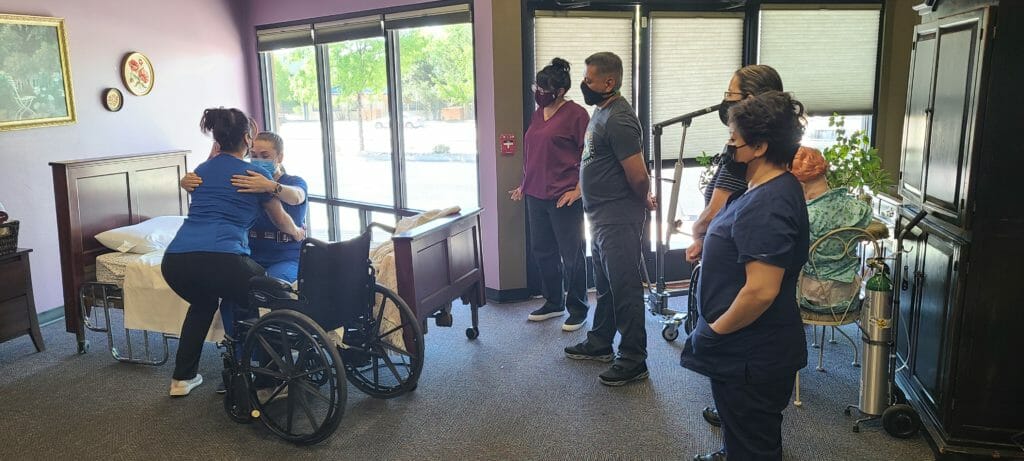
Sarai, a Mexican immigrant, has found a job that she truly loves: home care. Five years ago, the undocumented 32-year-old — who asked to withhold her last name — switched from working as a housekeeper to working as a caregiver for seniors in Albuquerque. As a private contractor, Sarai can pick and choose clients, as well as set her own schedule.
“I worked with several clients at once in the past, but because I have a family, I decided I only wanted to work with one client now,” Sarai told McKnight’s Home Care Daily Pulse. “That allows me to spend more time with my children.”
Sarai discovered home care through a unique training program at the Albuquerque nonprofit Encuentro, which provides a variety of services for Latino immigrants. The 15-week home health aide program launched in 2016 and offers a holistic approach to home care. It teaches students how to transfer patients from beds to wheelchairs, bathe and dress them, care for catheters and prepare meals.

Encuentro Home healthcare program coordinator Mayte Lopez told McKnight’s Home Care Daily Pulse some of the 226 students who have completed the program worked as nurses in their home countries but could not get work in the U.S. because of their undocumented status. She also added that many Latinos are attracted to home care work because it conforms with their culture.
“We, as Latinos, grow up in multigenerational homes. Grandparents are in the same home as the grandchildren, so the whole family takes care of their elders and people with disabilities,” Lopez explained. “It’s really a vocation that comes out of cultural norms.”
Immigrants make up approximately 30% of the nation’s 2.3 million home care jobs, according to PHI National. The nonprofit, which tracks the direct care industry, estimates thousands more undocumented immigrants work for as private contractors for cash as part of the gray economy.
New Mexico has an especially large immigrant population. About 10% of the population is foreign-born, with approximately three-quarters coming from Mexico. Fewer than half of the state’s immigrants are naturalized citizens.
Lopez said the program has trained a mix of both documented and undocumented immigrants. The majority, like Sarai, become independent contractors after completing the program because they can often make more money on their own than working for agencies. Most graduates make hourly wages from $18 to $24, according to Lopez. The average hourly wage for agency-based home care workers in Albuquerque is about $11.50.
“A lot of agencies don’t have benefits — no days off, no sick days, no vacations,” Lopez said. “There’s not a lot of power for the workers in the industry as the model stands right now.”
Encurentro also helped Sarai upgrade her skills since graduating from the program. She recently learned cardiopulmonary resuscitation and has become a certified CPR instructor to help supplement her caregiver wages. She hopes to continue upgrading her skills and make caregiving a lifelong career.
I’ve come to really love what I do,” she said. “I like spending time with my clients and talking to them and giving them the care they need.”
Editor’s note: In terms of labor problems, there has never been a time like today. In this ongoing series, McKnight’s Home Care will explore the various facets of the workforce shortage, how home care is responding to it and the innovation that is propelling the field forward with new and sometimes unconventional solutions. Read a new installment each month until the end of the year.

